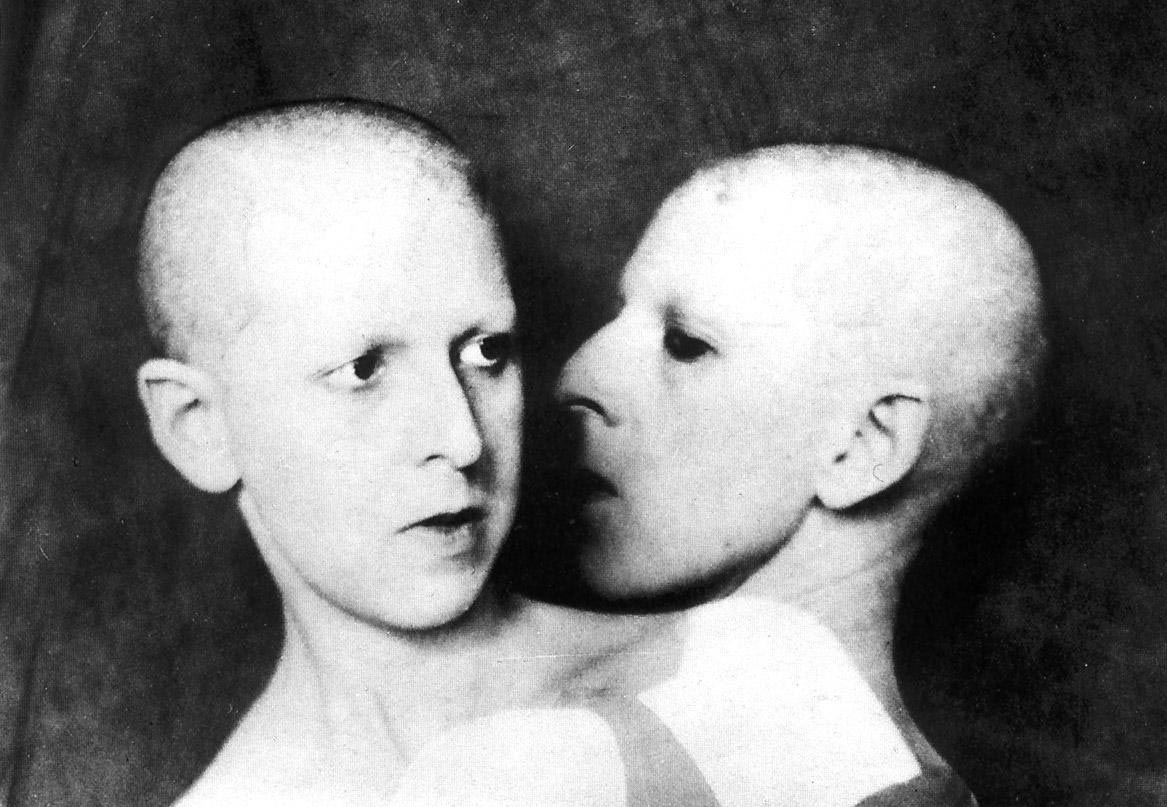Have you ever heard of Claude Cahun? Chances are you haven’t, despite the surrealist artist’s astounding biography and ahead-of-its-time body of work. From their teen years, Cahun, with her romantic partner (and step-sister) Marcel Moore, embarked on a lifelong collaboration taking portraits of the androgynous Cahun, living by the seaside in Jersey (the Channel Island) and fucking with occupying Nazis amid WWII. Jessa Crispin writes a powerhouse profile of Cahun in the Offing. An excerpt below.
Here are these two middle-aged lesbian artists hanging out on an island, and then here come the Nazis. And these two women, instead of just keeping their heads down or trying to rally the inhabitants of the island to revolt, they decide they’ll go after the Germans themselves. Not all of the Germans can be rabid Nazis, they think. They write hundreds of leaflets in German — which apparently they don’t speak so much, as I discover when I start to translate the surviving documents with a Berlin friend over Skype: “They write German like you write German,” she tells me — in the voice of a German soldier, der Soldat ohne Namen, who urges his comrades to mutiny.
Being skilled pickpockets and socially invisible, they slip the propaganda into the pockets of the occupiers. They write letters as the ghosts of dead soldiers. They particularly like pamphletting the funerals of dead German soldiers, writing in the voice of the recently deceased. Their house is right next to the cemetery, and yet no one suspects them. They dress up in costumes and take on new identities to sneak around the island. They try to wake up the Germans to what they are really doing and how this will all end badly. Some Germans start to desert and disappear off the island.
The Germans in charge start to get nervous. They figure that this must be a well-organized movement of dozens of people. And not, you know, two ladies who live by the sea. The Germans start searching for this resistance movement, and meanwhile the two ladies sit and write their propaganda: The Allies are making headway, Berlin is burning, there is no hope for you, get out while you can. They get away with this for four years.
And then they are arrested and sentenced to death.

